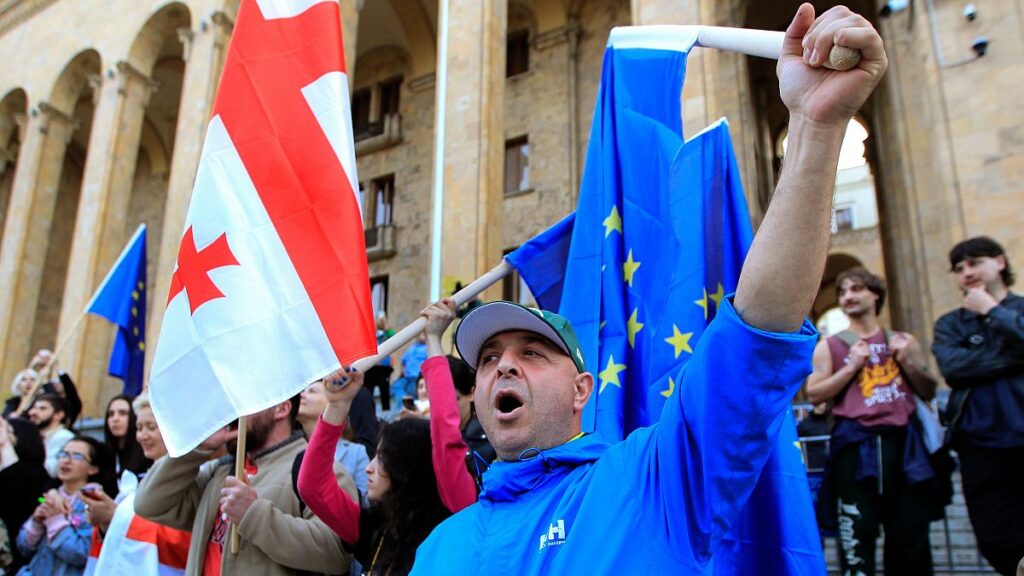The proposed legislation, ostensibly aimed at countering “foreign influence”, has faced concerns that it mimics restrictive measures enacted in Russia.
Thousands of Georgians protested in the capital against the government's efforts to pass a law that mimics repressive policies enacted by the Kremlin.
The ruling Georgian Dream party has introduced a new bill in parliament, which was previously withdrawn following public backlash.
The law requires media outlets and nonprofit organizations to register as foreign-influenced if they receive 20% or more of their budget from abroad.
This is the same proposal that Georgian Dream was pressured to withdraw a year ago following massive street protests.
The only change is that the phrase “agent of foreign influence” has been replaced with “pursuing the interests of a foreign power.”
Opponents of the bill have called it “Russian law”, saying it is similar to laws that Russia uses to stigmatize independent media outlets and organizations deemed to be in conflict with the Kremlin. He blames it.
Georgian Dream is often criticized for having concerns about Russia; There is a long debate As to whether this characterization is justified.
But the country's president, Salome Zurabichvili, warned in recent protests that the bill meant a choice between “independence or enslavement for Europe and Russia.”
The city of Brussels has warned that if the “foreign influence” law is passed, it will be a major blow to Georgia's status as an EU candidate, which is widely supported by Georgians.
The EU's main foreign policy arm, the European External Action Service, said last week that reintroducing the bill would raise “serious concerns”.
“The EU recalls that the European Council granted Georgia candidate status, understanding that the relevant measures set out in the European Commission's Recommendation of 8 November 2023 have been taken. ” the service said. warned in a statement.
“Step 9 includes recommendations for Georgia to allow civil society to operate freely, and step 1 calls on Georgia to fight disinformation against the EU and its values.
“Transparency should not be used as a means of restricting civil society's ability to operate freely.”
Russia has long sought to exert influence in Georgia, one of several border countries that Putin's government considers to be within its legitimate sphere of influence.
In 2008, Russia invaded South Ossetia and Abkhazia, two breakaway regions from Georgia, in a move to pre-empt a 2014 offensive into eastern Ukraine. Since then, there have been no formal diplomatic relations between Tbilisi and Moscow.


